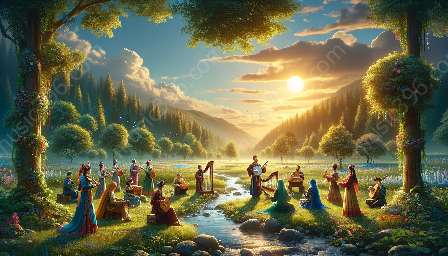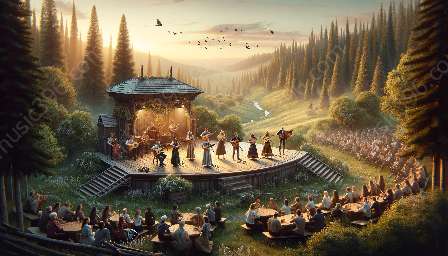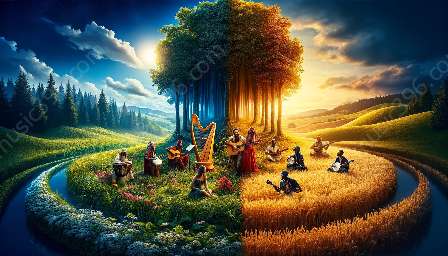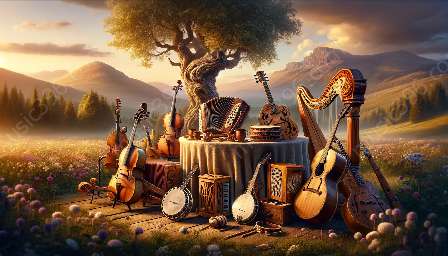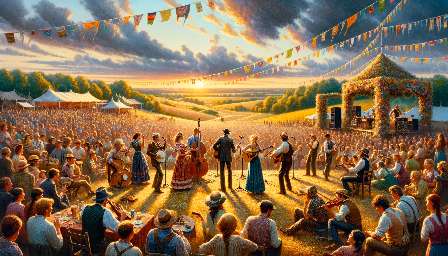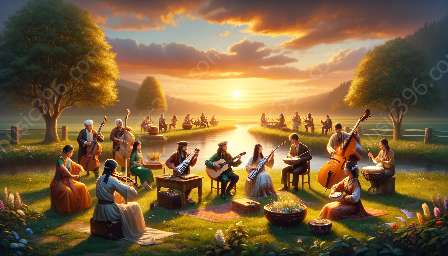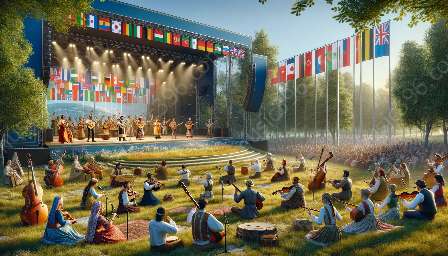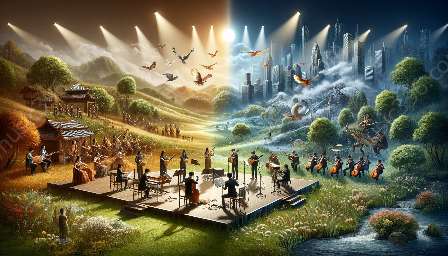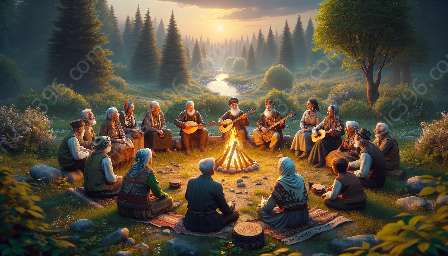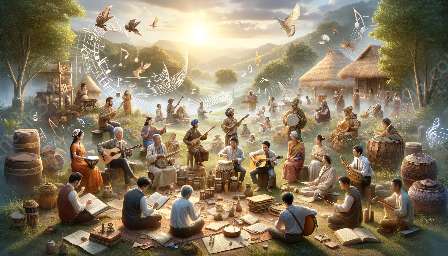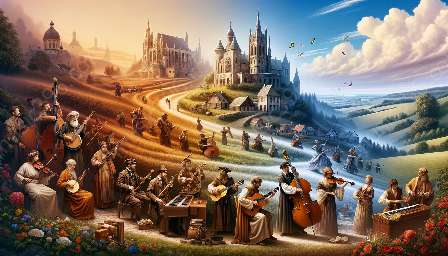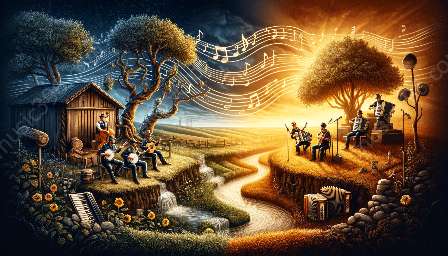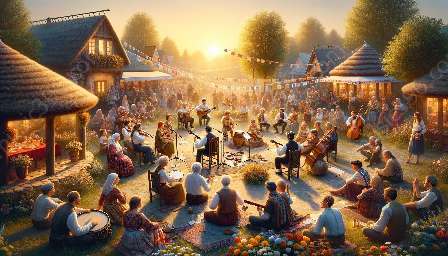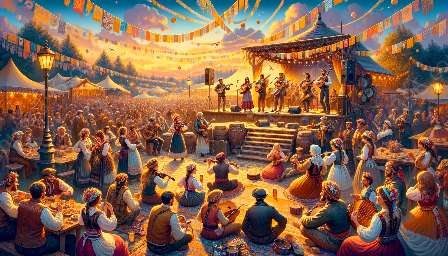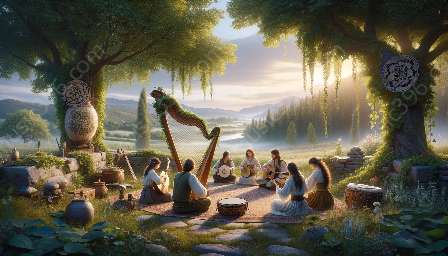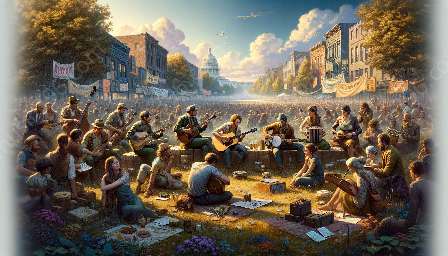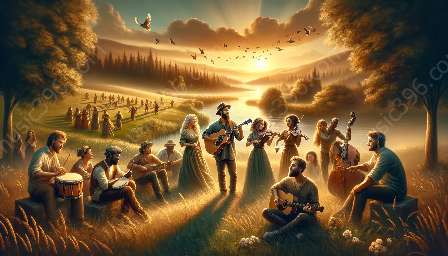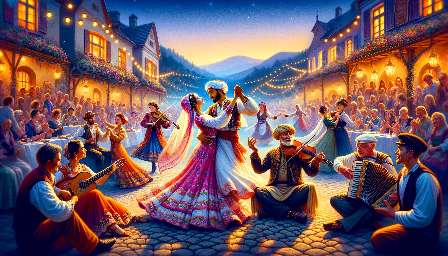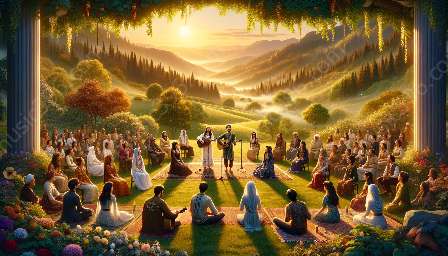Folklore and folk music traditions have long been intertwined, forming a rich tapestry of cultural expression. Across diverse cultures, these traditions have served as a means of preserving history, conveying beliefs, and celebrating community ties. This article explores the connections between folklore and folk music in different cultures, examining their ongoing relevance in contemporary society and the enduring vitality of folk and traditional music.
The Roots of Folklore and Folk Music
At the heart of folklore and folk music lies the essence of oral tradition and communal storytelling. These traditions embody the collective wisdom, experiences, and aspirations of a people, passed down through generations via songs, tales, and rituals. Whether through ballads, dance tunes, or narratives, folk music provides a sonic backdrop to folklore, breathing life into myths, legends, and historical accounts.
Global Perspectives
Every culture boasts its own unique folklore and folk music, reflecting the diversity of human experience and creativity. From the spirited jigs of Irish fiddle music to the haunting melodies of American blues, from the rhythmic chants of African tribal dances to the soulful ballads of Spanish flamenco, folk music serves as both a mirror of cultural identity and a bridge across borders. Each tradition holds within it a treasure trove of customs, beliefs, and societal values, offering a vibrant glimpse into the soul of a people.
Interplay of Folklore and Folk Music
As folklore shapes the narratives and mythologies of a culture, folk music serves as its living soundtrack. Whether in times of joy, sorrow, or rebellion, folk music has been a conduit for expressing the hopes, struggles, and triumphs of communities. This interconnected relationship between folklore and folk music has fostered bonds of solidarity among diverse groups, uniting individuals through shared experiences and shared tunes.
Folk Music in Contemporary Society
Despite the rapid pace of modernization and globalization, folk music continues to thrive and evolve in contemporary society. It remains a vital source of cultural heritage, connecting individuals to their roots while adapting to new expressions and genres. In concert halls, festivals, and digital platforms, folk music resonates with audiences, serving as a living testament to the enduring power of tradition in the modern world.
Relevance and Resilience
In a rapidly changing world, folk music remains relevant as a means of preserving and celebrating cultural diversity. Its capacity to evoke nostalgia, inspire social consciousness, and provide catharsis endows it with enduring relevance. Furthermore, folk music has transcended traditional confines, embracing modern influences and collaborations, thereby ensuring its enduring appeal to contemporary audiences.
Preservation and Innovation
Efforts to preserve and promote folk music traditions are ongoing, with enthusiasts and scholars working to safeguard these cultural treasures. In parallel, folk music continues to innovate, incorporating new instruments, technologies, and genres while remaining faithful to its core traditions. The fusion of tradition and innovation ensures the longevity and adaptability of folk music in an ever-changing world.
Cultural Identity and Expression
Folk music serves as a powerful vehicle for cultural identity and expression, offering a sonic embodiment of a culture's roots, struggles, and aspirations. It allows individuals to connect with their heritage and express their lived experiences, fostering a sense of belonging and pride. Moreover, through its diverse forms and narratives, folk music enriches the global tapestry of musical expression, contributing to mutual understanding and respect among cultures.
Folk and Traditional Music
Delving into the realm of folk and traditional music reveals a boundless reservoir of human creativity and ingenuity. Whether in traditional village rituals or modern concert halls, the enduring allure of folk music transcends time and place, encapsulating the essence of humanity's collective imagination and resilience.

